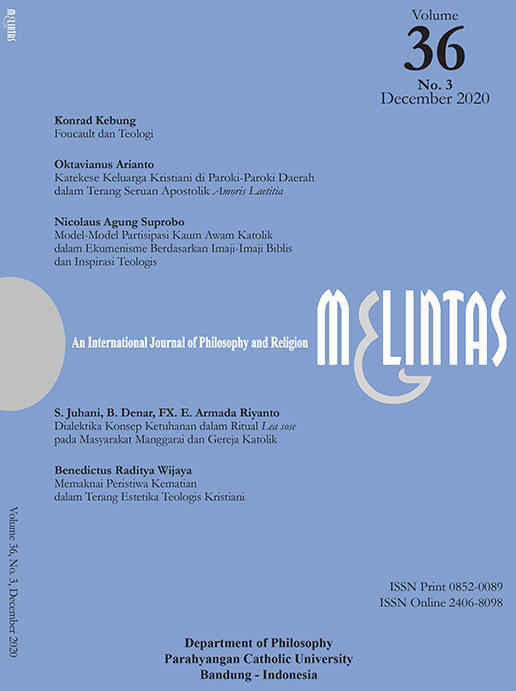Foucault dan Teologi
DOI:
https://doi.org/10.26593/mel.v36i3.5384Keywords:
philosophy, negative theology, religion, power, history, culture, FoucaultAbstract
This article presents the relation between Michel Foucault’s philosophical thoughts and theology. So far one might hardly hear about the discussion of the impact of Foucault’s thought on theology and all disciplines related to it, such as religion, exegesis, spirituality, and the like. Recently many poststructuralists and postmodern thinkers have been interested in this issue. In fact, Foucault’s thoughts and analyses are considered very useful for the development of theology and the concepts of religious experience. Through his analyses of history and culture, Foucault prepares raw materials useful for theological reflections which are basically grounded on reality and the concrete life of humankind. Thus Foucault can help theology more rooted within reality, and therefore theology is not merely associated with the ecclesiological and dogmatic teachings of the Church, but can help them to be more easily digested and practised by the living community of the believers.
Downloads
Published
Issue
Section
License
Copyright (c) 2020 Konrad Kebung

This work is licensed under a Creative Commons Attribution-NonCommercial 4.0 International License.
MELINTAS applies the Creative Commons Attribution (CC BY NC) license to articles and other works we publish. If you submit your paper for publication by MELINTAS, you agree to have the CC BY NC license applied to your work.


